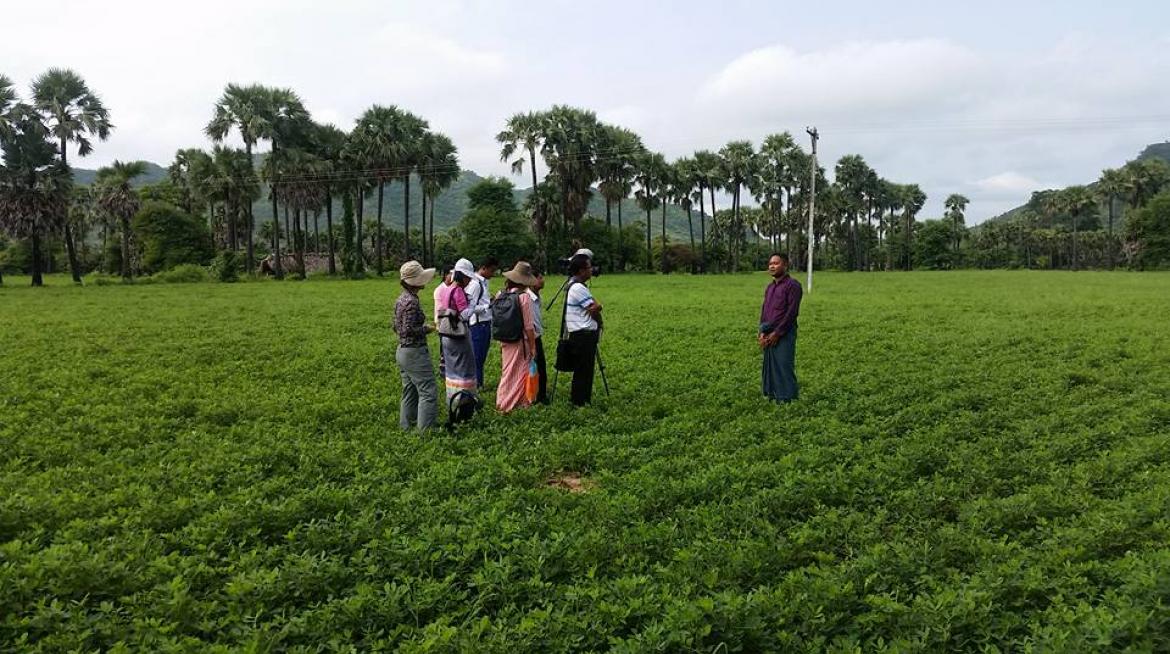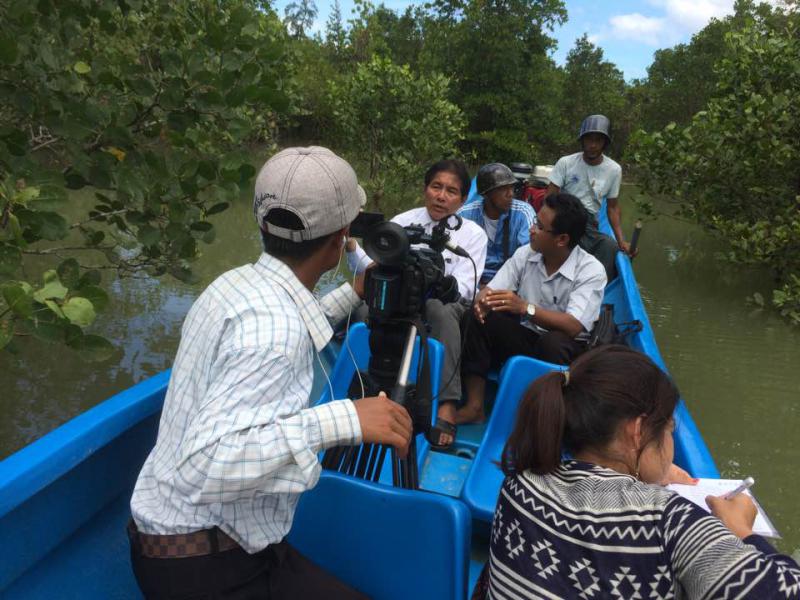
UNESCO has just completed filming a 6-part educational TV series designed to educate and inspire viewers across Myanmar about agricultural development in the country.
Since late 2014, LIFT has funded UNESCO to facilitate access to development information by marginalised groups in the rural sector in Chin, Rakhine, Shan, Ayeyarwady and Mandalay regions that will enable them to make informed choices and decisions needed to improve quality of life and reduce poverty. The three-year project is designed to improve productivity and incomes of rural households across the country by providing better access to rural agricultural development information through mass media channels.
In collaboration with the Ministry of Information and key stakeholders including the Ministry of Agriculture, Livestock and Irrigation, the project has produced its first round of products – 6 TV programmes, 10 Radio programmes and 34 short Public Service Announcements that will be broadcast in the coming weeks through MRTV’s TV and radio platforms and Farmer’s channel.
Access to information and knowledge about weather conditions, nutritious foods, agriculture techniques and market prices can contribute greatly to reducing poverty and improving the livelihoods of thousands of people engaged in the rural sector.
The final scenes of the TV programmes were filmed at a model farm surrounded by the ancient pagodas of Bagan, in Nyaung-U district recently.
After filming in Nyaung-U, the production crew returned to MRTV’s studios in Tatkone where the final editing of the programmes is being done under the supervision of experts from the Australian Broadcasting Corporation (ABC), the leading broadcaster in the Asia-Pacific region. It marks the last step in a long journey that has brought the team to remote areas across Rakhine, Shan, Ayeyarwady, Chin and Mandalay in search of stories and experiences that can educate and inspire viewers across the country.

Mikel Aguirre, Project Officer at UNESCO said the project also showed the challenging conditions of day-to-day life in the rural Myanmar.
“The programmes provide these groups the opportunity to voice their concerns and share their experiences with farmers in other regions that might be facing the same difficulties, inspiring them to make the necessary changes that can contribute to a better life,” Mr Aguirre said.
“We also believe that TV and Radio are very powerful tools to influence the authorities to develop laws and policies that meet the needs of those whose lives depend on agriculture, livestock breeding or fishing. When lawmakers and policymakers in Nay Pyi Taw switch on their TVs and radios, they will have farmers directly talking to them about what they need and what should be done to improve their lives.”
UNESCO has also collaborated with the news agency Myanmar Now to provide a News and Features Service covering stories about agricultural development and livelihoods that local media outlets can publish for free.
The shows will also be translated into 17 ethnic languages and aired on TV and radio through the National Races Channel.
UNESCO's press release about the project is available here.


